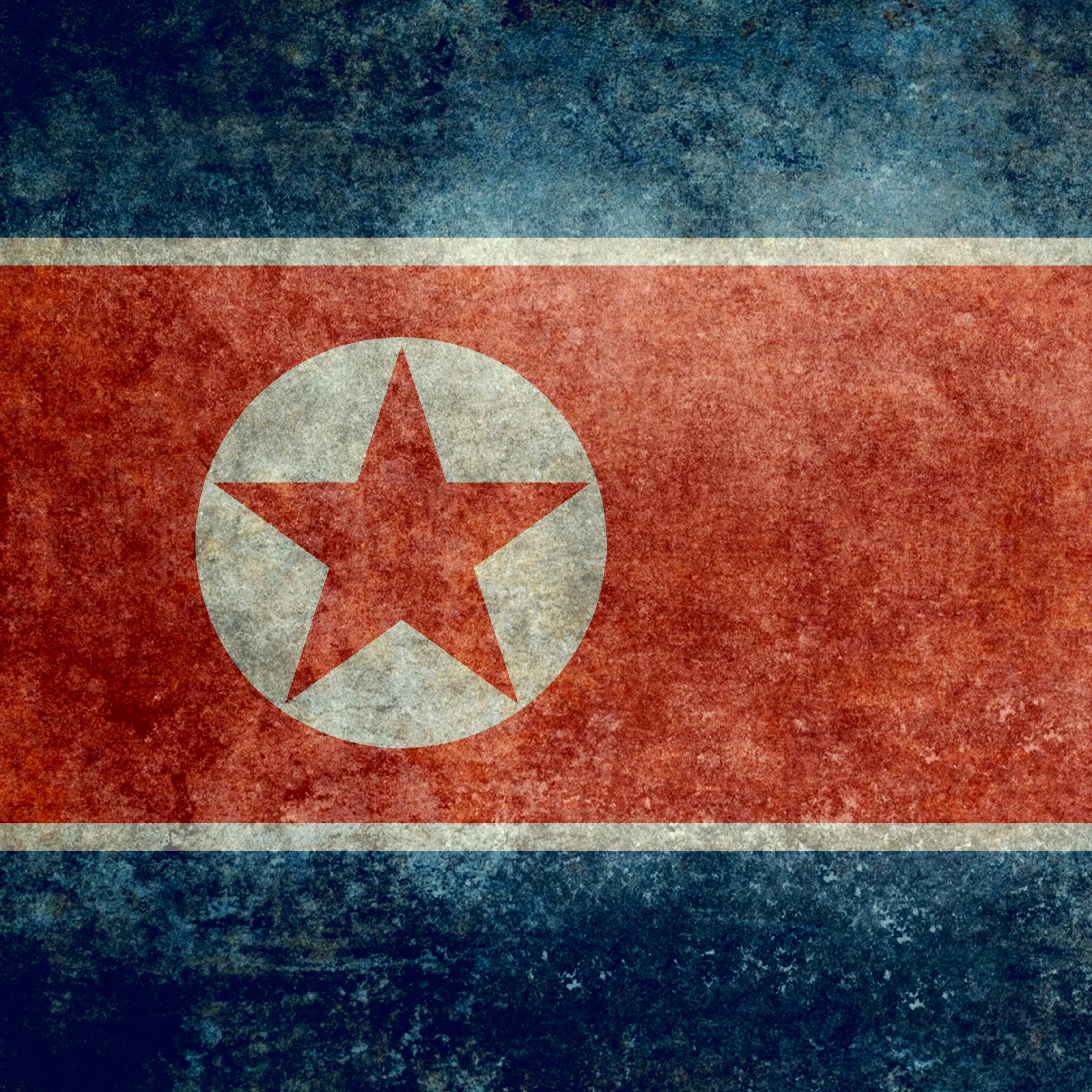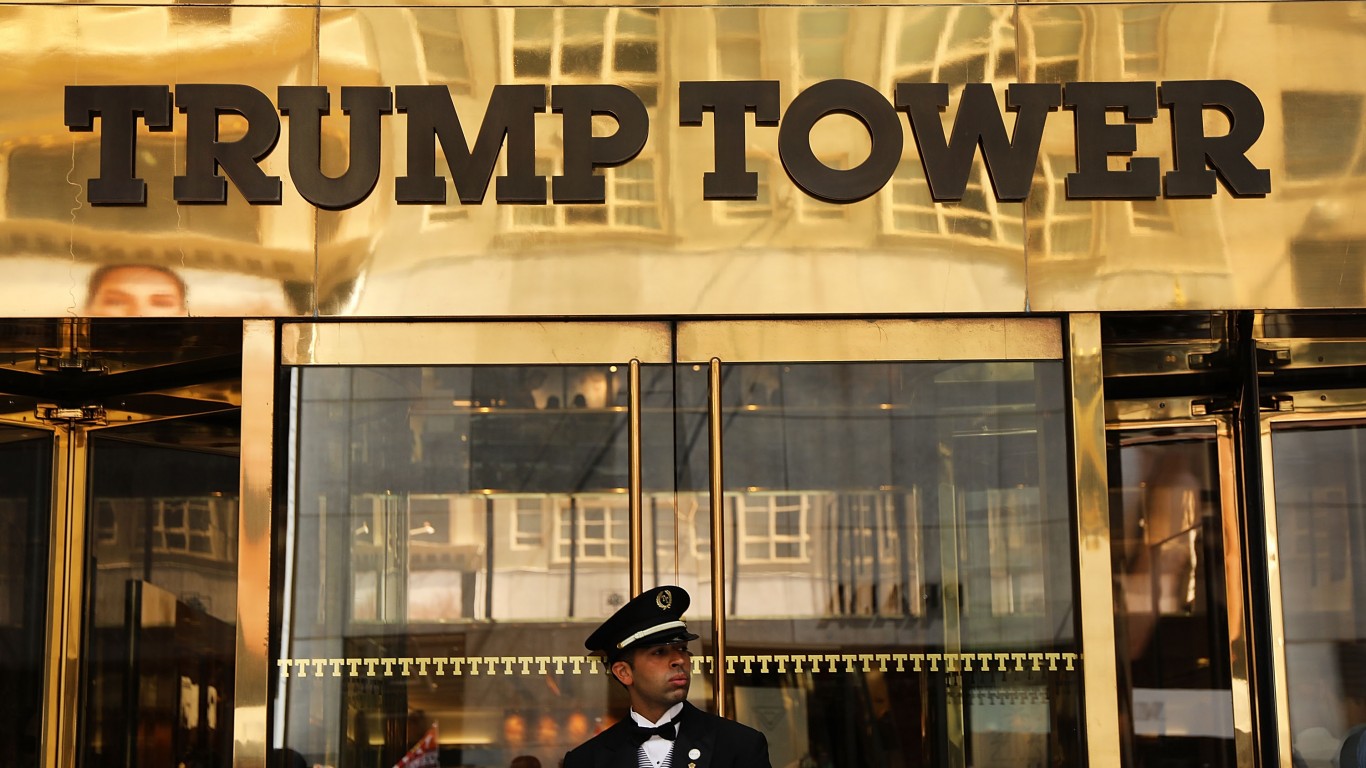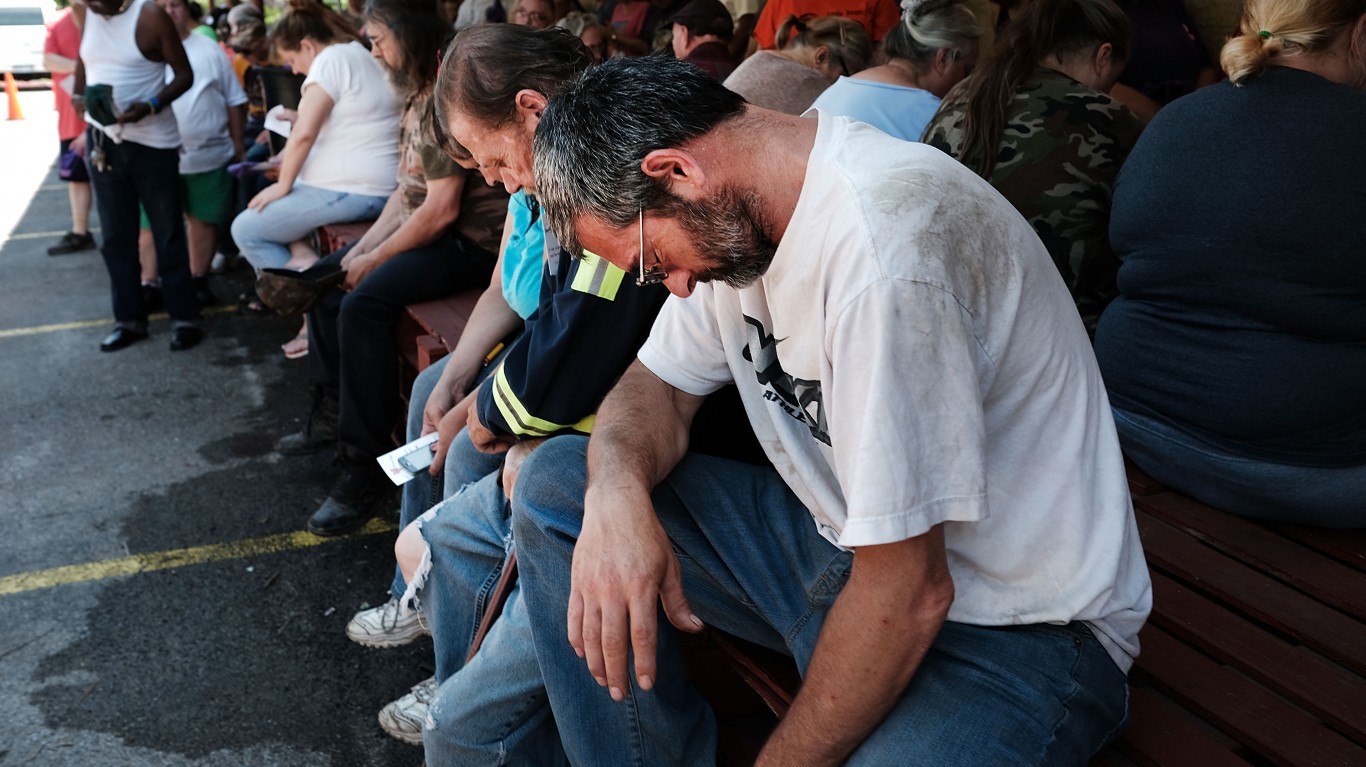
President Donald Trump arrived in Seoul, South Korea, at midday Tuesday local time, the second stop on a 12-day trip that began with a visit to Japan and will next head to China. Before Trump left Japan, the country’s prime minister, Shinzo Abe, said at a press conference that “now is not the time for dialogue but for applying a maximum level of pressure on North Korea.”
North Korea, officially the Democratic People’s Republic of Korea (DPRK), last detonated a nuclear test in late September and threatened to launch and explode a nuclear-armed missile into the Pacific Ocean. The DPRK has already launched two unarmed missiles that flew over Japan.
With Abe’s support and increasingly tough talk from South Korean President Moon Jae-in, Trump could take an even harder line in Tuesday afternoon’s scheduled press conference and Wednesday’s address to the country’s National Assembly. North Korean rhetoric is rising to the occasion.
The government’s KCNA news agency published a commentary this morning stating that the United States should give up on the “absurd idea” that the DPRK would give up its nuclear program as a result of pressure from foreign governments:
Our self-defensive nuclear treasure sword will be sharpened evermore unless the US hostile policy toward the DPRK is abolished once and for all.
[The United States] had better stop daydreaming of denuclearisation talks with us.
The tough talk and flouting of international sanctions comes at a cost, however. Following the late September nuclear test, China announced that it would no longer buy North Korean textiles and would limit its exports of refined oil products to the DPRK to 2 million barrels a year beginning January 1, a 10% reduction from the current estimated total.
Exports of crude oil are not included in the reduction, and crude oil represents a larger portion of China’s exports to the North Koreans. The EIA estimates China exports about 5.5 million barrels a year of crude oil to the DPRK.
An earlier U.N. Security Council resolution prohibited all exports of North Korean coal, iron, iron ore, lead, lead ore and seafood. The sanctions also included more restrictions on the country’s Foreign Trade bank and forbids North Korea from sending more workers abroad.
Economically, North Korea is one of the poorest countries in the world. Its population of about 25 million lives in extreme poverty, with annual estimated per capita income of $1,800, according to the CIA World Factbook.
Because the DPRK’s economy is highly dependent on trade with China, China’s decision to support the U.N. sanctions was seen as an important step in forcing North Korea to heel. About 75% of the country’s $4.15 billion in exports are sent to China and 76% of its $4.8 billion in imports come from China.
According to the CIA Factbook, North Korea is a source country for men, women and children who are subjected to forced labor and sex trafficking. Workers are not free to change jobs and “tens of thousands” of North Koreans, including children, are held in prison camps and subjected to forced, heavy labor.
In addition, the country sends tens of thousands of its citizens to both Russia and China where they work under near-slavery conditions and have most of their earnings confiscated by the DPRK, according to a report in The New York Times.
Nearly two-thirds (63%) of the DPRK’s total labor force of 14 million works in the industry and services sectors. The remaining 37% work in agriculture. The CIA Factbook notes that unemployment ran to 25.6% in 2013, about equal to the unemployment rate in Greece.
The country’s capital city is Pyongyang, and the executive branch of the DPRK’s government is headed by Kim Jong-un, the grandson of Kim Il Sung and the son of Kim Jong-il who had ruled the country since its founding in 1948. The former has been designated the Eternal President and the latter the Eternal General Secretary. The current Premier is Pak Pong Ju, and there are eight vice premiers.
The unicameral legislature, the Supreme People’s Assembly, is elected by citizens 17 years of age and older and serve for five-year terms. The Korean Worker’s Party selects all candidates.
The DPRK’s judicial system consists of a supreme court comprised of a chief justice and two “people’s assessors.” The judges are elected to five-year terms by the Supreme People’s Assembly. The system includes provincial, municipal, military, special and people’s courts.
The country’s literacy rate is 100%, and both males and females attend school for 12 years.
The life expectancy in the country is estimated at 70.4 years, comprised of an average of 66.6 years for men and 74.5 years for women. Nearly half (44%) of the population falls in the 25 to 54 year old age category, and less than 10% of the population is over 65 years old. In the United States, just over 15% of the population is over 65 year old and less than 40% falls in the 25 to 54 age range.
According to a U.S. Defense Department report, over 1 million soldiers serve in the Korean People’s Army. That total includes ground, air, naval, missile and special operations forces. The United States active duty roster in 2015 totaled 1.43 million. The U.S. population of about 320 million is more than 10 times that of the DPRK.
According to a recent report from Australia’s News.com.au, North Korea spends as much as 22% of its $40 billion GDP on its military. U.S. defense spending, though much higher at $600 billion, represents about 3.3% of U.S. 2015 GDP of more than $18 trillion.
A report from Global Fire Power estimates that the DPRK’s defense budget is $7.5 billion, ranking it 23rd in the world for military spending. The country’s army includes 5,025 tanks, 4,100 armored fighting vehicles, 2,250 self-propelled guns, 4,300 towed artillery pieces and 2,400 multiple launch rocket systems.
The North Korean air force counts 944 total aircraft, including 458 fighters, 572 fixed-wing attack aircraft, 100 transport aircraft, 169 trainers, 202 helicopters and 20 attack helicopters.
The North Korean navy includes a total strength of 967 vessels, including 438 coastal defense craft, 76 submarines, 25 mine-warfare ships, 11 frigates and two corvettes. The country has no aircraft carriers or destroyers.
The Defense Department report states that North Korea has been an exporter of conventional arms and ballistic missiles for several decades. Weapons sales are a critical source of foreign currency for the country, which is unlikely to cease export activity in spite of U.N. Security Council sanctions.
Are You Ahead, or Behind on Retirement?
If you’re one of the over 4 Million Americans set to retire this year, you may want to pay attention. Many people have worked their whole lives preparing to retire without ever knowing the answer to the most important question: am I ahead, or behind on my goals?
Don’t make the same mistake. It’s an easy question to answer. A quick conversation with a financial advisor can help you unpack your savings, spending, and goals for your money. With Zoe Financial’s free matching tool, you can connect with trusted financial advisors in minutes.
Why wait? Click here to get started today!
Thank you for reading! Have some feedback for us?
Contact the 24/7 Wall St. editorial team.




